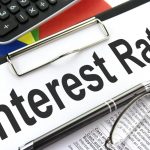As interest rates for home loans continue to climb, mortgage stress levels escalate.

Two in five Singaporeans (40 per cent of Singaporeans) faced some difficulties in paying off their mortgage loans in 2022.
The percentage of Singaporeans facing mortgage stress in 2021 was just 31 per cent.
The Fourth OCBC Financial Wellness Index revealed these numbers. The OCBC Financial Wellness Index (“the Index”), launched in 2019, is a measurement of the state of Singaporeans’ financial wellness. Every year, around 2,000 working adults in Singapore between the ages of 21 and 65 are surveyed online.
The Index predicted that as interest rates continue to climb, mortgage stress levels may continue to escalate.
14 per cent of Singaporeans are unable to pay their home loans on time in 2022. The figures were just 9% in 2021. In 2022, 8 per cent of Singaporeans also indicated that they would have to sell or downgrade their homes to pay their loans. Only 6 per cent of Singaporeans said the same in 2021. The Index pointed out that in 2022, 38 per cent of Singaporeans are worried about not being able to afford a home. This is an increase from 36 per cent in 2021.
The results of the Index showed that more Singaporeans are facing mortgage stress and are worried about home financing.
Ms Tan Siew Lee, OCBC Bank’s head of wealth management, said: “2022 has been a tough year for Singaporeans – probably one of the toughest in decades with inflation at an all-time high. Add to this economic uncertainty, rising interest rates and a market downturn, we truly are experiencing a year with ‘no place to hide’.”
Mr Paul Ho, chief mortgage officer at iCompareLoan, suggested that those who are struggling to pay off their housing loans should approach their banks for help.
“Some bank offer restructuring options such as extending loan tenors or charting out a debt repayment plan to help consumers lower their monthly commitments. Those that are mortgage stressed should make full use of such grace extended by their banks.”
Paul Ho, Chief Mortgage Officer, iCompareLoan
“There is also the option of refinancing or repricing,” reminded Mr Ho.
Those who want to reprice, should speak with their lenders. Repricing means the the renewal of your existing mortgage plan with your existing lender without changing banks. The typical period to start reviewing your existing mortgage loans for repricing or refinancing should commence about four months before the ending of your package tie-in or lock-in period. This could range anywhere from between one to three years depending on the contractual terms when you first signed up the mortgage loan.
For most people, at the end of this period your mortgage package, may no longer be the ‘cheapest’ in the market.
Mortgage reprice basically keeps you under the same bank with your loan, it is often the cheaper because it has conversion fees of around $500 on average. But whether it saves more than a refinancing move or not depends on your loan amount and estimated penalty fees.
Homeowners who fail to consider both repricing and refinancing risk coming under mortgage stress later.
Mortgage brokers may be the best placed to help you explore refinancing. Such professionals are able to help home owners to get their expenses down before they make refinancing applications. The services of such professionals will be especially useful considering that the next wave of interest rates are due to hit soon, putting more home owners under mortgage stress.
Banks are usually slow off the mark in raising the interest rates in response to global events like the US Federal Reserve rate hikes. This lag time is where a mortgage consultant can best help a distressed mortgagee to finance a new purchase or to refinance their current property.
Mr Ho said, “there may be a short window of refinancing opportunity for home-owners to to get the best rate in the market for their home loan, and they must grab it when they see it.”
He added, “mortgage consultants can get the best rates for home owners who want to refinance their home loans by comparing across 16 banks and financial institutions – and best of all, our services are free.”
Not shopping around for the best home loan, could be the biggest mistake home owners could make, which would keep them trapped without refinancing or mortgage reprice opportunity.
Do you check prices with several airlines before buying a plane ticket? Do you compare grocery store coupons to see which supermarket has the best offer? If you do all that and do very little to devote a little time to finding the best possible refinancing deal for your home, then you are potentially throwing tens of thousands of dollars in fees and interest over the life of the loan.
There are various reasons for why people make refinancing decision. It is important to carefully research when refinancing and analyze the best option in each specific situation. While the idea of having an extra lump sum of money is appealing, it is important to consider the options, especially during these rough economic times, it is important to keep in mind long-term goals and ramifications that would be affected by refinancing.
The fact is. more than half of property owners are probably paying too much for their mortgages and many people are locked into mortgages not suitable for their financial situation. If you are in these circumstances, you should quickly make a refinancing decision and speak to a mortgage broker.
In the right circumstance, refinancing could be one of the best financial decisions made by a homeowner. Homeowners have to carefully consider the reasons to refinance, such as locking into a lower interest rate, or having a lower the monthly payment, and taking advantage of lengthening or shortening their home loan. The best home loan is just one step away from you not missing out on the best refinancing opportunity.






